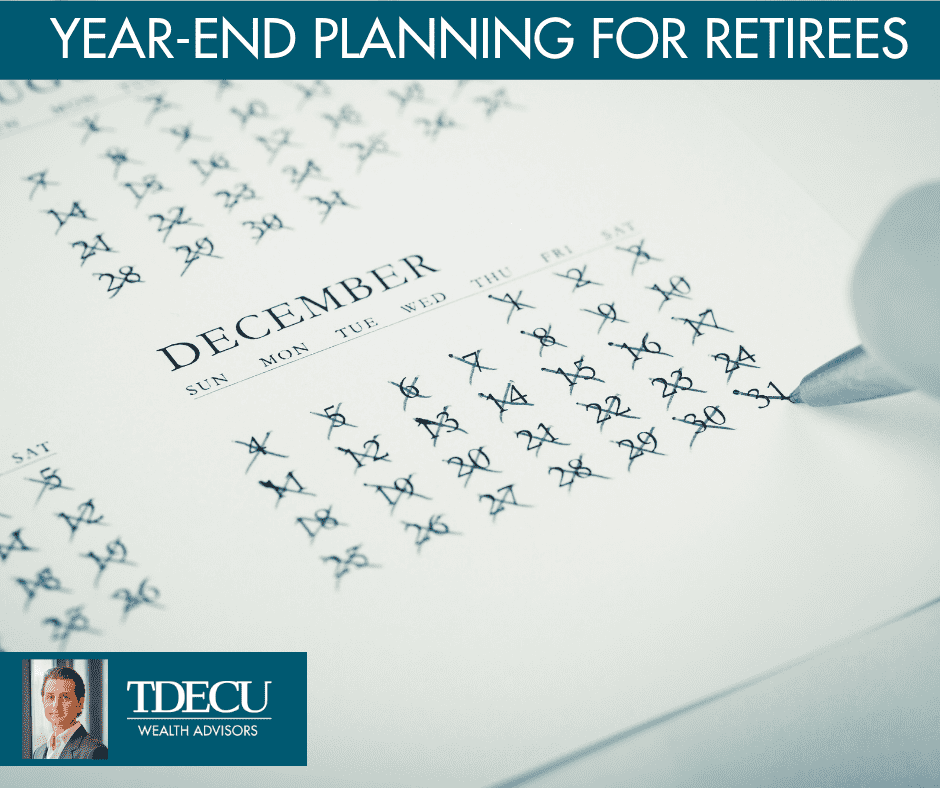For some, 2021 has flown by—and as we approach the last quarter of the year, it's a good time to begin planning for the next one. Year-end planning is especially important for retirees and those hoping to retire in 2021 or 2022. There are tax and income strategies you might consider regarding your financial assets. Here are three steps you may take when planning the end of the 2021 tax year and the beginning of 2022.
Consider Tax Loss Harvesting
Although the pandemic roiled markets in 2020, the first half of 2021 led to major gains in many sectors. This may make tax-loss harvesting tougher but not impossible. Suppose you are sitting on any losses in an account subject to tax, such as a taxable account, 401(k), or an individual retirement account. In that case, you may be able to sell these equities or "harvest" them to balance out any realized gains in funds you may need to withdraw to cover living expenses or other costs. Harvesting must take place within a single tax year.
For example, if you're sitting on a loss in one stock, you may sell it, then sell a better-performing stock to cash out the same amount in long-term gains. This technique may lower your tax liability by using these two assets instead of just paying taxes on your gain. Meanwhile, once you wait 30 days to avoid the "wash sale" rule, you may buy back into the lower-performing stock if you like.2 Unless that stock has had a massive recovery in a single month, you may be able to enjoy any long-term appreciation in its value at a lower cost basis.
Rebalance Your Asset Allocation
In retirement, it may be helpful to review both your risk tolerance and your asset allocation. As some assets increase in value while others remain stagnant or drop, your actual asset allocation may begin to stray from your intended portfolio. This circumstance may require some rebalancing by selling over-performing funds and buying back under-performing ones. Also, evaluate the future of these sectors to see whether other investments may be a better fit for your needs.
Update Your Income, Health Care, and Emergency Expense Plans
A low-stress retirement may hinge on having access to a stable source of income—an annuity, a pension, or rental or other passive income. Without this, you may be at risk of major market fluctuations occurring just when you need to withdraw some cash. The end of the calendar (and tax) year may be a great time to revisit your income plan for the next year. Consider whether to set aside additional funds for health-care-related expenses and evaluate how you would pay for emergencies. By having a plan in hand, you may be able to weather whatever 2022 may bring.
Have specific questions? Don't hesitate to reach out to me today
Wes Garner, CRPC
Principal Wealth Strategist
(281) 269-8669
wgarner@tdecu.org

Important Disclosures:
The opinions voiced in this material are for general information only and are not intended to provide specific advice or recommendations for any individual.
This information is not intended to be a substitute for specific individualized tax advice. We suggest that you discuss your specific tax issues with a qualified tax advisor.
Asset allocation does not ensure a profit or protect against a loss.
Rebalancing a portfolio may cause investors to incur tax liabilities and/or transaction costs and does not assure a profit or protect against a loss.
All information is believed to be from reliable sources; however LPL Financial makes no representation as to its completeness or accuracy.
LPL Tracking # 1-05187459
2 https://www.forbes.com/advisor/investing/tax-loss-harvesting/#
